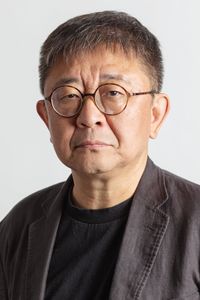Zhang Lü, a Chinese-Korean filmmaker of remarkable talent and versatility, was born on May 30, 1962, in the picturesque city of Yanbian, nestled in the northeastern province of Jilin, China. As a third-generation Korean individual, he was deeply rooted in his cultural heritage, which would later influence his creative pursuits and artistic expression.
Zhang Lü's journey in the world of cinema began with a rich literary background, as he had previously established himself as a renowned novelist. However, a heated dispute with a film director friend unexpectedly took a dramatic turn, as Zhang Lü was goaded into accepting a bold challenge. The bet, which was that "anyone can make a film," proved to be a turning point in Zhang Lü's life, as it prompted him to take the leap of faith and embark on a new creative path.
Without any formal training or experience in filmmaking, Zhang Lü found himself at a crossroads. Undeterred by his lack of technical expertise, he received an outpouring of support from his colleagues in the industry, including the highly acclaimed filmmaker Lee Chang-dong. This much-needed encouragement enabled Zhang Lü to muster the confidence to take on his first short film project, "Eleven," which was released in the year 2001.
A poignant and introspective cinematic experience unfolds in this captivating 14-minute narrative, where an 11-year-old protagonist's chance encounter with a group of peers his own age takes place amidst the desolate backdrop of a post-industrial wasteland.
The unassuming yet riveting tale of "Eleven" garnered widespread acclaim, earning an invitation to participate in the esteemed 58th Venice International Film Festival, as well as other prominent international film festivals.
This remarkable achievement served as a catalyst for Zhang Lü's decision to dedicate himself to a full-time career in filmmaking, marking a significant turning point in his artistic journey.
Zhang's cinematic endeavors have predominantly centered on exploring the struggles and plights of marginalized communities, with a specific emphasis on the experiences of ethnic Koreans residing in China.


























